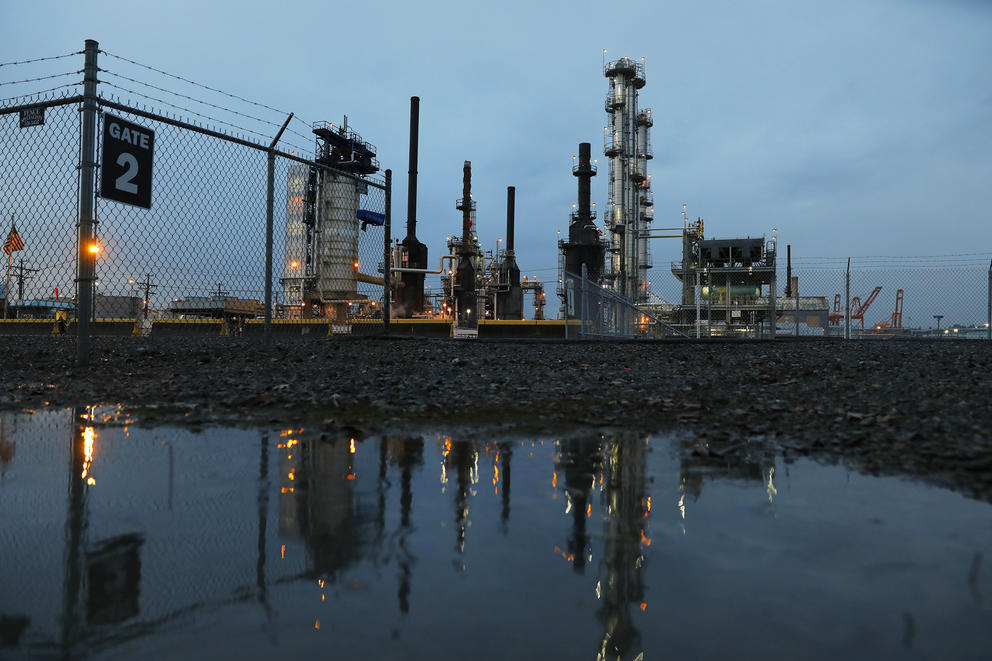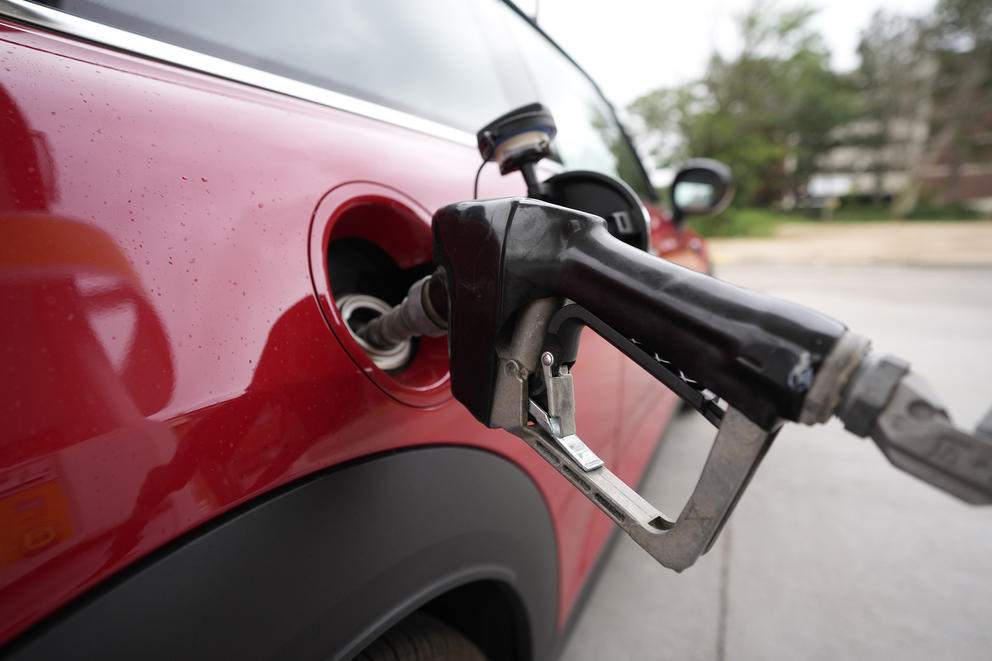“We’re going to make sure we have the resources needed to defeat 2117,“ said No On 2117 spokesman Mark Prentice. Environmental and left-leaning organizations make up most of the No On 2117 coalition, but the group also includes the Seattle Metropolitan Chamber of Commerce, BP America, and the Certified Electrical Workers of Washington union.
The cap-and-invest program has already brought about $2 billion into the state budget, mostly to support climate change mitigation, health and construction programs. During this year’s legislative session, lawmakers allocated more than $800 million of those dollars to do things like buy electric school and transit buses, install electric vehicle charging stations, support salmon recovery and coastline restoration, buy forest land and restore landscapes destroyed by wildfires.
If the initiative passes, that new source of cash would dry up. Voters will also decide in November whether to kill Washington’s new capital gains tax, which also has plowed new money into the state budget.
Every quarter since the beginning of 2023, the state has been auctioning carbon emission allowances to polluting industries. The program has been blamed for a 21-cent- to 50-cent-per-gallon increase in gasoline prices, but the reasons for gas price fluctuations are actually much more complex.
Since participation in the bidding is kept confidential, no public information is available on which oil companies have bought allowances and how much they have purchased. Therefore, it is impossible to tell if the finances of all oil companies and gasoline providers are affected equally, even though gas prices usually go up and down in unison. Fuel prices increase or decrease due to numerous national, international, political, geographic and economic factors. And, as the governor’s office likes to point out, gas prices have gone both up and down since the program started.
Since February, No On 2117 has collected roughly $4.7 million and spent about $365,000, according to the Washington Public Disclosure Commission. Big donors include Microsoft co-founder Bill Gates ($1 million), software developer Chris Stolte ($1 million), husband-and-wife software developers Craig McKibben and Sarah Merner ($1 million), venture capitalist David Thatcher ($350,000), Seattle Kraken co-owner Samantha Holloway ($250,000), board member of several climate and progressive organizations Jabe Blumenthal ($250,000) and the Washington Federation of State Employees ($100,000). No On 2117 has $76,000 in debt.
In a press release, No On 2117 reported it has received pledges for donations from Amazon, Microsoft and Connie and Steve Ballmer, retired Microsoft CEO.
Meanwhile during the signature gathering phase, Let’s Go Washington raised $7.37 million and spent $7.66 million, according to the PDC. So far in 2024, Let’s Go Washington has raised $765,488 and spent $464,970. It has $256,873 in debt.
Redmond hedge fund manager Brian Heywood provided roughly $5 million of the 2023 donations to get I-2117 on the November ballot. “I’m not putting any more money into it,” Heywood said of the 2024 campaign. That $5 million also included getting two other Let’s Go Washington initiatives on the November ballot — repealing the state’s fledging capital gains tax and revoking a 2023 law that taxes paychecks to provide for long-term health care insurance.
In an April 10 memo, Democratic political consultant Sandeep Kaushik noted that most of Heywood's 2023 donations were loans that might have to be repaid. "How much of the contributions given to [Let's Go Washington] over the next seven months will go to paying back Heywood for his initial investment versus funding actual campaign expenditures? This unanswered question is a huge disincentive for potential donors to Let’s Go Washington," Kaushik wrote.
In an interview, Kaushik said the Heywood contribution listed as loans in PDC documents “implies Heywood wants to pay himself back to some extent.”
A Volvo XC40 electric vehicle is shown following a December 2021 news conference in Olympia, where Gov. Jay Inslee announced several climate-related proposals for the 2022 legislative session, including a plan to offer rebates on the purchase of new and used electric vehicles for qualified buyers. (AP Photo/Ted S. Warren)
Heywood loaned Let’s Go Washington another $157,000 in 2024, according to the PDC. Let’s Go Washington’s top donors in 2024 are Bellevue-based Kemper Holdings, led by prominent businessman Kemper Freeman Jr. ($100,000), Yakima business investor Peter Plath ($50,000), a Yakima-based entity called 1975 CHRD ($12,000) and the Washington Retail Association ($10,000).
Cap-and-invest supporters “are going to have to raise $15 million to convince people of something that is not true. [Cap-and-invest] is not designed to remove climate change. It is designed to be a tax,” Heywood said.
Both sides said they expect lots of small contributors to donate to their campaigns. “Other side is a bunch of big money. … They’re going to make me the villain. … This is the American Revolution army versus the well-financed British army,” Heywood said.
Meanwhile, the Western States Petroleum Association — which represents four of Washington’s oil refineries, plus others along the Pacific Coast — plans to sit out the balloting. “We do not oppose the [Climate Commitment Act] and believe the cap-and-trade program should be fixed rather than repealed. We are not involved in the campaign,” wrote WSPA spokesman Kevin Slagle in an email.
The fifth Washington oil refinery is owned by BP America, which is part of the No On 2117 coalition.
Let’s Go Washington plans to focus its campaign on the increase in Washington’s gas prices.
No On 2117 will stress the fallout on Washingtonians if the cap-and-invest program is revoked. “All these involve cutbacks in public programs that have broad public support. … I don’t think that is a hard message to convey,” Kaushik said.
“I-2117 would deal a catastrophic blow to efforts to reduce carbon and health-harming air pollution and it would have a devastating impact on our state budget,” said David Mendoza, director of public advocacy and engagement for The Nature Conservancy, in a No On 2117 press release. He mentioned the money needed for renewable energy, clean air and water, healthy communities and forests, and for economic support for those most impacted by the climate crisis. “That’s why a broad coalition of organizations and community leaders from across our state has come together to mobilize communities in Washington to defeat I-2117,” he added.





